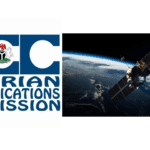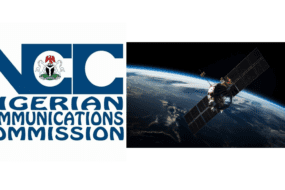Africa continues to fall behind in internet adoption, with only 38% of its population connected as of 2024. This figure, revealed in a new International Telecommunications Union (ITU) report, is far below the global average of 68%. The gap underscores long-standing challenges such as cost, infrastructure gaps, and limited digital literacy across the continent.
The report, titled State of Digital Development in Africa, notes that while demand for internet access is growing, many are held back by the high cost of services. The median price of a basic 2GB monthly mobile data plan is 4.2% of gross national income (GNI) per capita—over twice the UN Broadband Commission’s 2% affordability benchmark. Fixed broadband is even more inaccessible, averaging 15% of GNI per person.
“Costs like these make digital access a luxury rather than a necessity for millions,” the report notes, pointing to widening digital inequality, particularly among low-income communities.
Urban-Rural Divide Deepens as 5G Access Remains Limited
The ITU highlights that mobile networks remain the most common way Africans get online. While mobile broadband now covers 86% of the population, 14% remain without access, and that number rises to 25% in rural regions. Although 70% of the population can access 4G services, many still rely on outdated 3G, and just 11%—mostly in cities—can connect to 5G networks.
The disparity is most striking between urban and rural areas. Internet penetration in cities reached 57% in 2024, while rural areas lag far behind at just 23%—the widest urban-rural digital divide globally. The ITU attributes this to uneven infrastructure development and investment patterns that favour urban zones.
“Focusing on cities alone will only widen the gap,” the report warns, urging governments and private sector players to address the imbalance.
Call for Action: Stronger Policies, Smarter Investments Needed
The ITU has urged African governments to implement stronger digital policies, expand infrastructure, and improve regulatory frameworks to increase connectivity. Only 18% of countries on the continent have achieved the highest regulatory level (G4), compared to 38% globally.
The report also calls for coordinated efforts across sectors to support digital growth. Key areas include digital ID systems, nationwide digital skills training, and cross-sectoral collaboration. Cybersecurity and data protection are also flagged as urgent priorities as digital transformation progresses.
“Digital transformation must be inclusive to be effective,” the ITU stressed, emphasising that without stronger governance and investment, millions of Africans risk being left offline.
- NCC Targets 23.3m Nigerians for Satellite-to-Phone Coverage
- Glo Issues Apology Over Nationwide Data Disruption Earlier Today
- FG Eyes Wider Internet Access Through NigComSat
- The Invisible Web Giant: How Cloudflare Powers a Fifth of the Internet (and What Happens When It Falters)
- Internet Users Panic as Cloudflare Outage Takes Down Major Sites
- Vitel Launches New Service Offering Free Calls and SMS













3 replies on “Africa Trails Global Internet Growth in 2024”
[…] payments consulting, digital product development, and data analytics. It supports clients in both Africa and the United States. DigiSquad aims to close the financial gap for people and communities that […]
[…] is seeing less dependence on international bandwidth routes. This local interconnection is making digital services faster, cheaper, and more […]
[…] ultra-fast broadband solution. The new product, named FTTR by Legend, is designed to deliver pure fibre internet access to every room in a home or office, creating a fully connected environment that supports smart homes, creators, remote […]